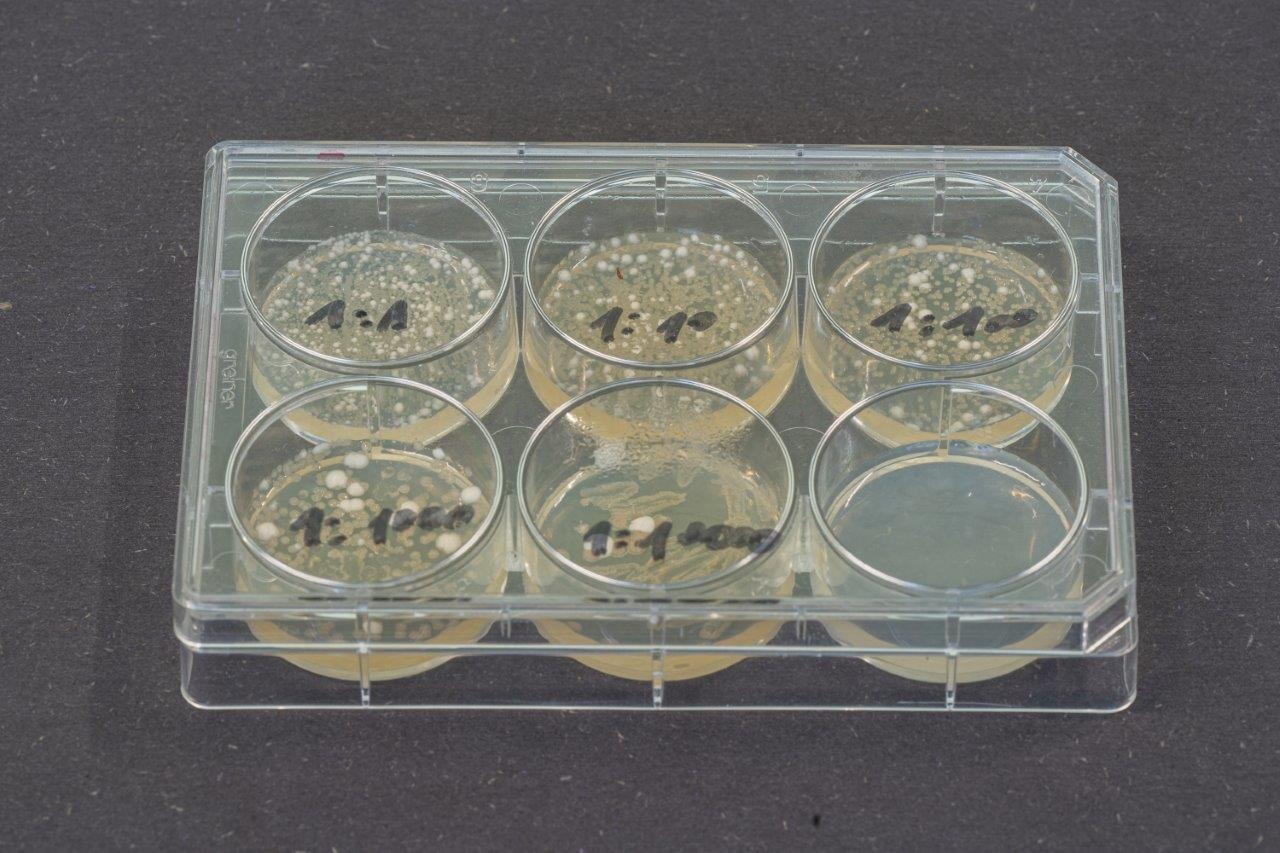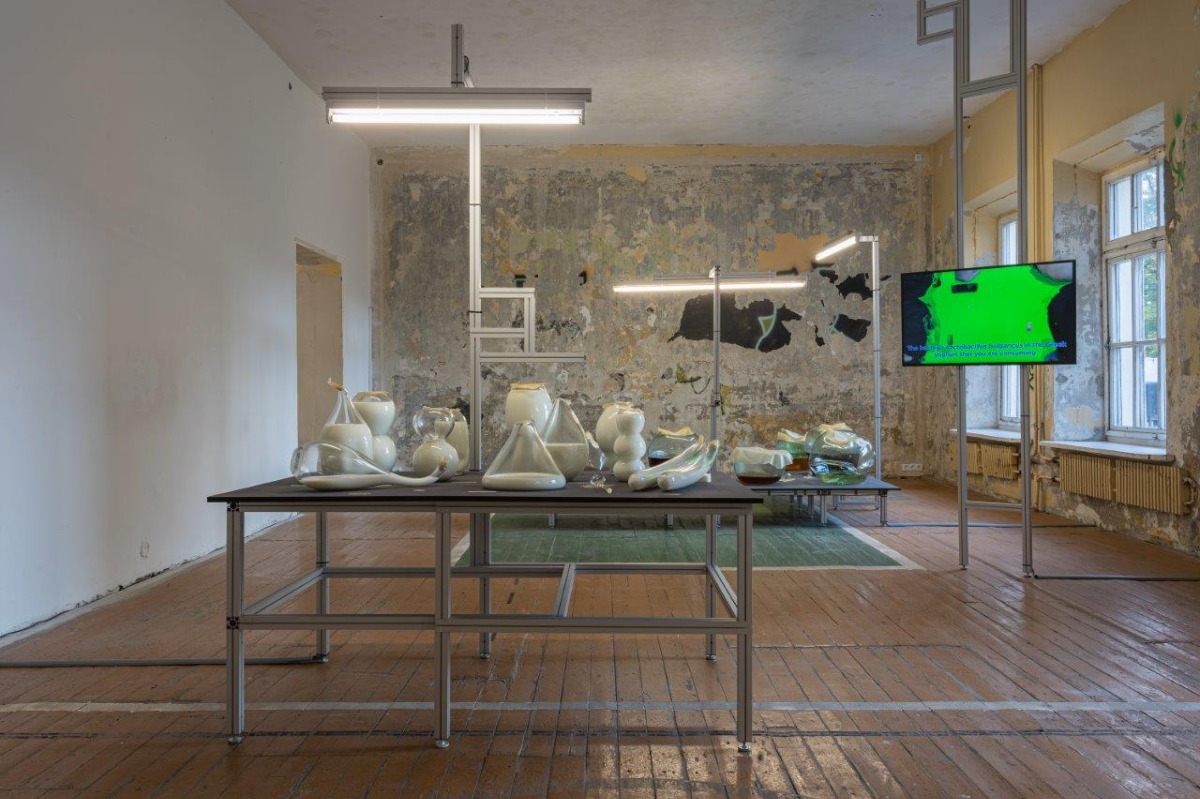
«Microorganisms & Their Hosts» by Mindaugas Gapševičius
Till October 15, 2020 at the “Atletika” gallery, 21 Vitebsko Str. Vilnius
“Microorganisms & Their Hosts” is a solo exhibition by Mindaugas Gapševičius, created in collaboration with microorganisms and professionals from various fields, such as scientist Auksė Gaižauskaitė (microbiology), artists Antanas Gerlikas (glass), Laura Kaminskaitė (exhibition design and glass), curator Valentinas Klimašauskas and others.
The audience plays a very important part in this processual project: by consuming products saturated with microorganisms during the exhibition, the audience members will be able to alter their microbiota and their experiences, and to observe them. When asked what might constitute an artwork in such an exhibition, the artist Gapševičius replied that, aside from the artefacts created, the interactive medium between human beings and microorganisms is what might be considered the main work of art. Time and experience are both very important elements in this project, which makes it related to such art movements and styles as Fluxus and relational aesthetics as well as the increasingly popular amateur maker culture – it is no longer unusual to produce your own fermented products at home, such as sourdough starter or fermented teas.
According to Gapševičius, other important factors alongside the influence of microbiota on our aesthetic perception are the audience’s direct participation in the project, the incorporation of their experiences into the artistic value of the work, and the dissemination of the ever-changing notion of art. The more the audience becomes involved in the development of new experiences through art-related experiences, the more actualised the contemporary art discourse will be.
Microbiologist Auksė Gaižauskaitė helped isolate certain chosen microorganisms for the project. According to her, the properties of probiotics, better known to the public as the ‘good’ bacteria, have been under research for many years. In more recent studies, scientists have even uncovered that gut bacteria can indirectly contribute to our emotional well-being and mood management. By purposefully consuming certain foods containing probiotic bacteria we could attempt to regulate the amount of probiotics in our bodies by ourselves. However, the scientist warns us that these processes are not as simple as they might sound and that we should approach them with care.
Mindaugas Gapševičius (born 1974) lives and works in Berlin, Weimar and Vilnius. His work questions machine creativity without presuming that the human being is the sole creative force. He has completed MA studies at the Vilnius Academy of Arts in 1999 and received a Master of Philosophy degree from the Goldsmiths University of London. He is a creative fellow at the Bauhaus University in Weimar since 2015. Gapševičius was one of the initiators and founders of Institutio Media, the first Lithuanian media art platform (1998), as well as the European Migrating Art Academies network for emerging artists (2008). Along with colleagues from the TOP association, he initiated the first TOP community biolaboratory in Berlin (2016). In 2019 he established Alt lab, a laboratory for non-disciplinary research in Vilnius.
Gapševičius’s works have been shown at the Ars Electronica festival in Linz (2019, 2020), the National Gallery of Art and MO Museum in Vilnius (2019), Piksel festival in Bergen (2018), RIXC art and science festival in Riga (2016), Pixelache festival in Helsinki (2015 and 2016), Pixxelpoint festival in Nova Goritsa (2014), KUMU Museum in Tallin (2011).
Photo: Andrej Vasilenko
Exhibition “Microorganisms & Their Hosts”. View of the main hall.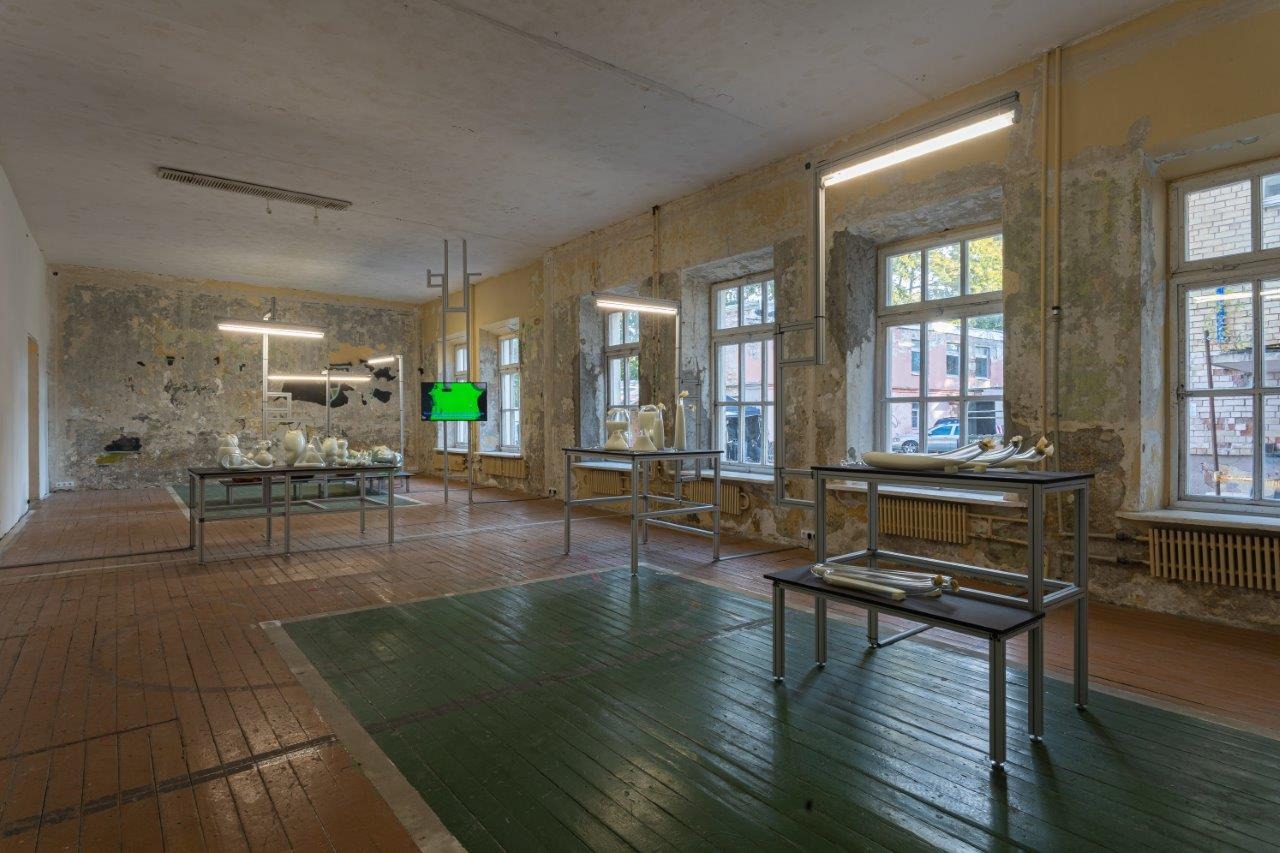
An installation Glass Containers within the Exhibition “Microorganisms & Their Hosts”. Glass Containers feature custom-made glass bowls filled up with kombucha containing different ingredients, including different microorganisms. Depending on the experience one anticipates, one could choose to use one or the other type of kombucha. The installation offers the audience the chance to experience their well-being in relation to the consumed beverages each with diverse microorganisms.
Installation Glass Vessels features a collection of custom-made glass vases filled up with diverse yogurts containing different bacteria, including Lactobacillus reuteri, Streptococcus thermophilus, Bifidobacterium lactis, Leuconnostoc spp., and a mix of each. Depending on the mood or the experience one anticipates, one may choose to consume one or the other yogurt. The installation offers the audience the chance to experience their well-being in relation to the consumed beverages each with diverse microorganisms.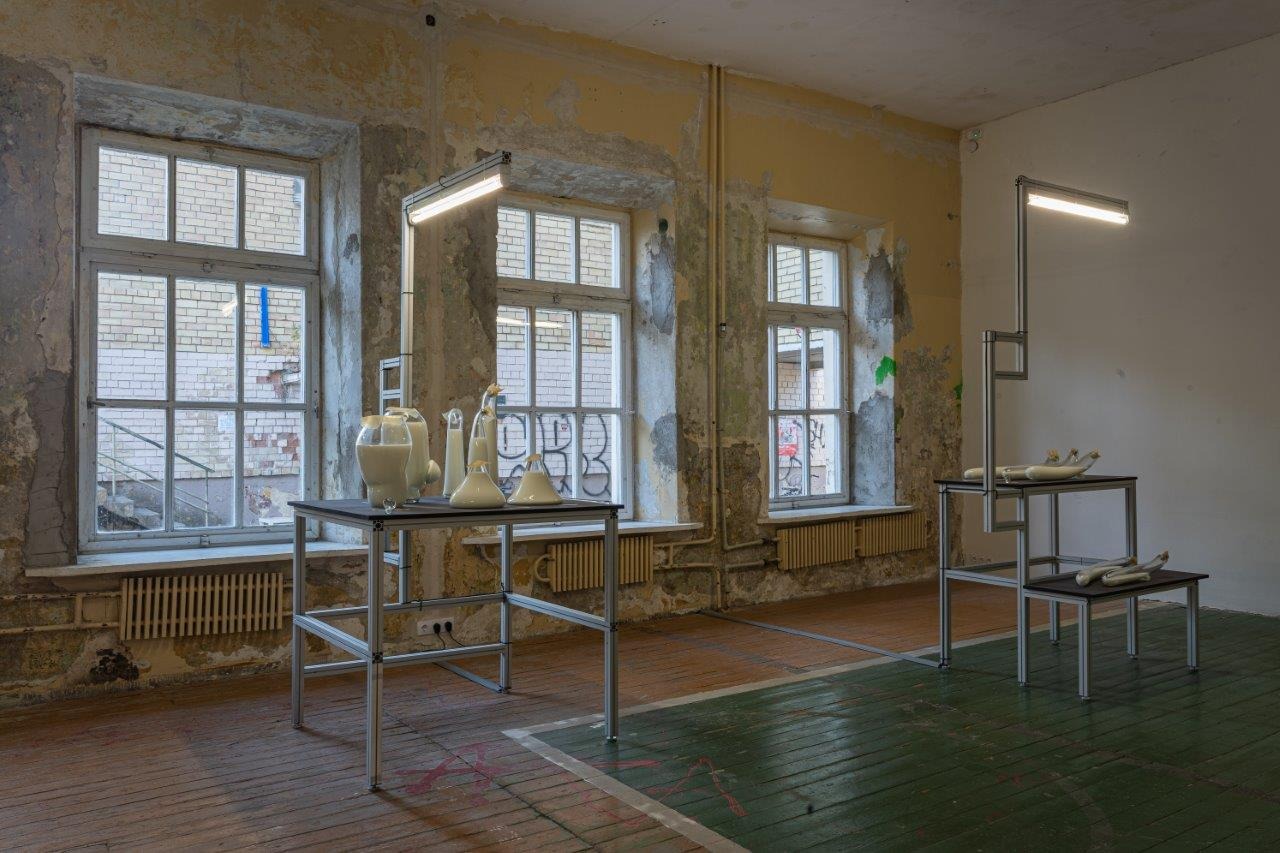
Glass Vessels. Installation detail
Glass Vessels. Installation detail
Glass Vessels. Installation detail.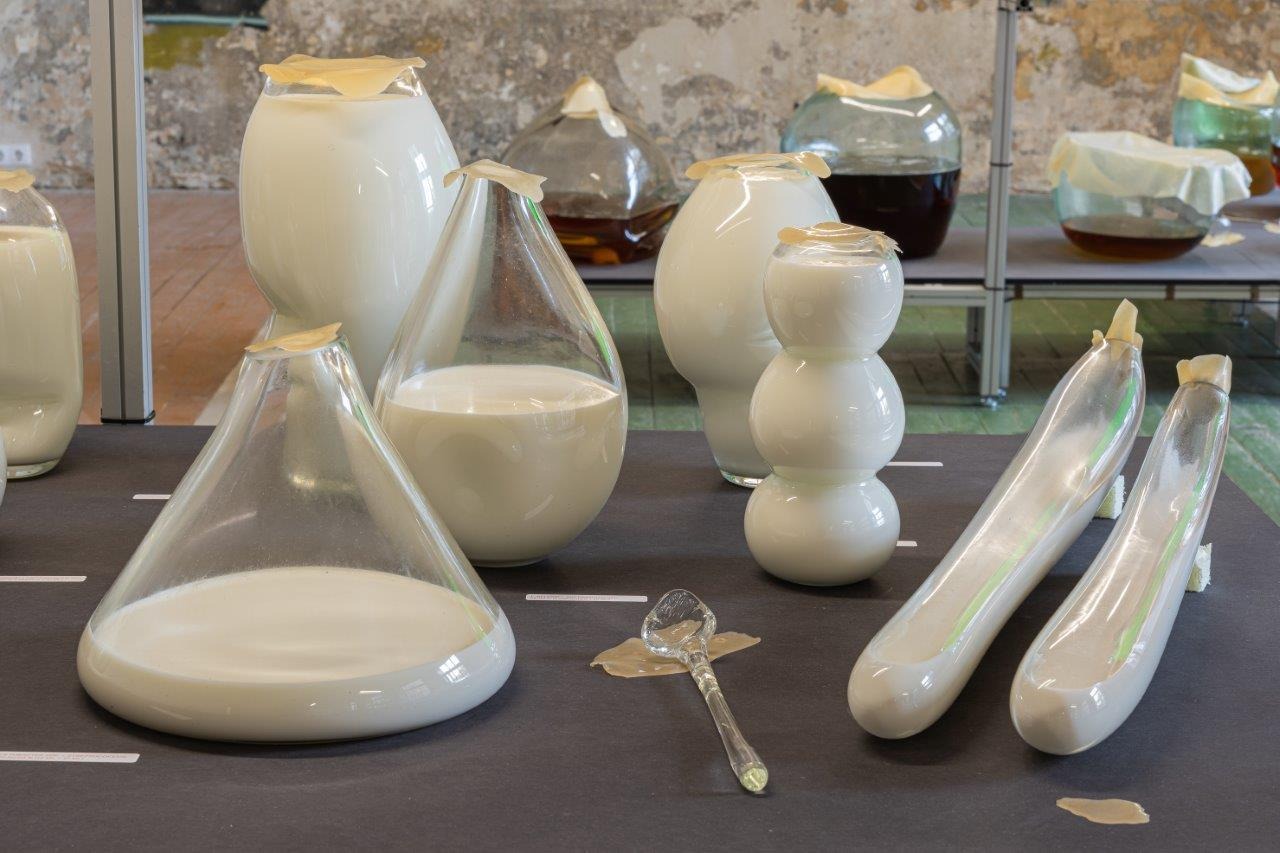
Glass Containers. Kombucha with green tea.
Glass Containers. Kombucha with black tea.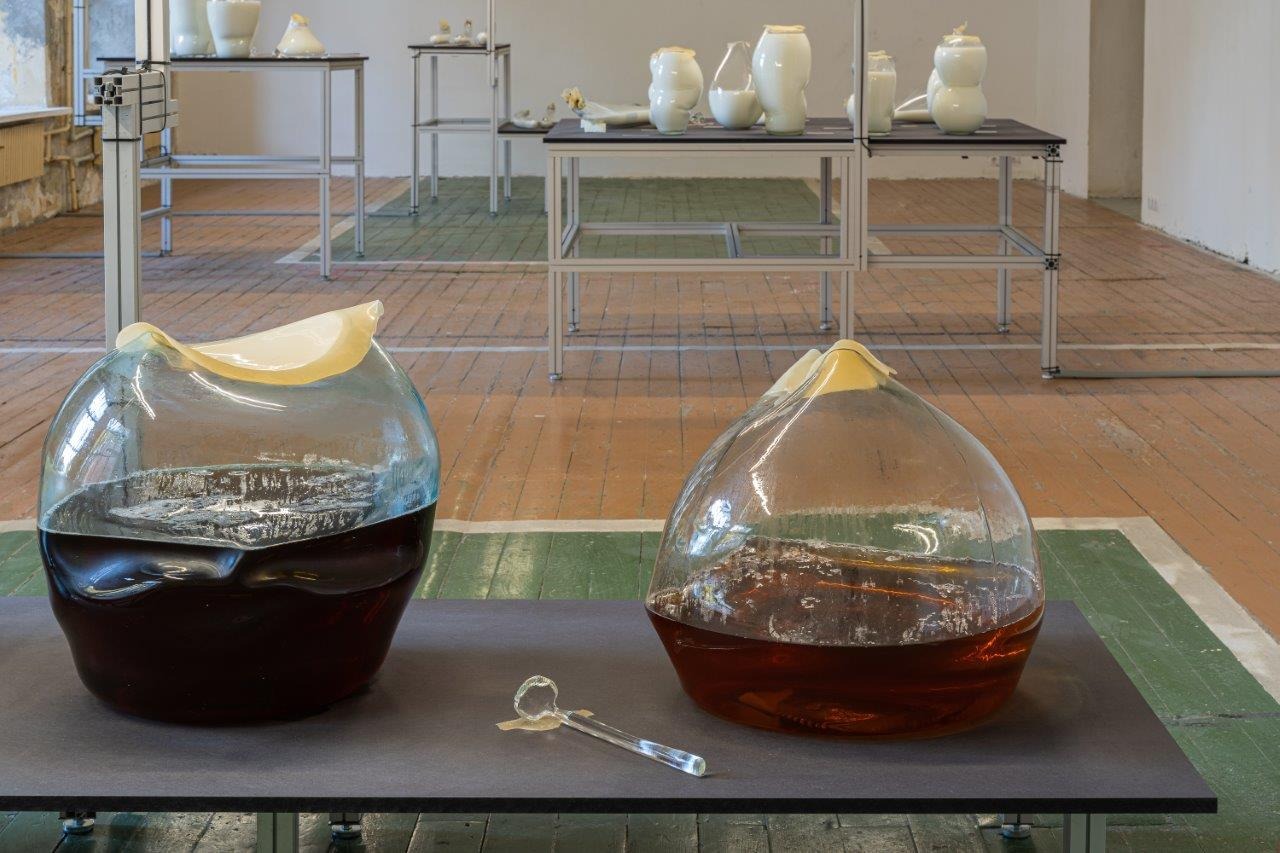
Microorganisms & Their Hosts. In the video, Auksė, Mindaugas and Valentinas discuss the impact of the fermented products we consume. The video proposes that we reconsider the ecology of a human while questioning the impact of the microbiome. The conversation encompasses self-healing strategies and how we experience an artwork in relation to changing environmental conditions. How can one experience their own microbiome? Is there any dependence between what we eat, how we behave and what we think?
Rectal Candle. The installation features a capsule that measures and sends over WIFI the pH of one’s rectum. If used along with different diets, one could track the condition of the microbiome or the change of one’s well-being. The object questions the relationship between the well-being of humans and the changing microbiome.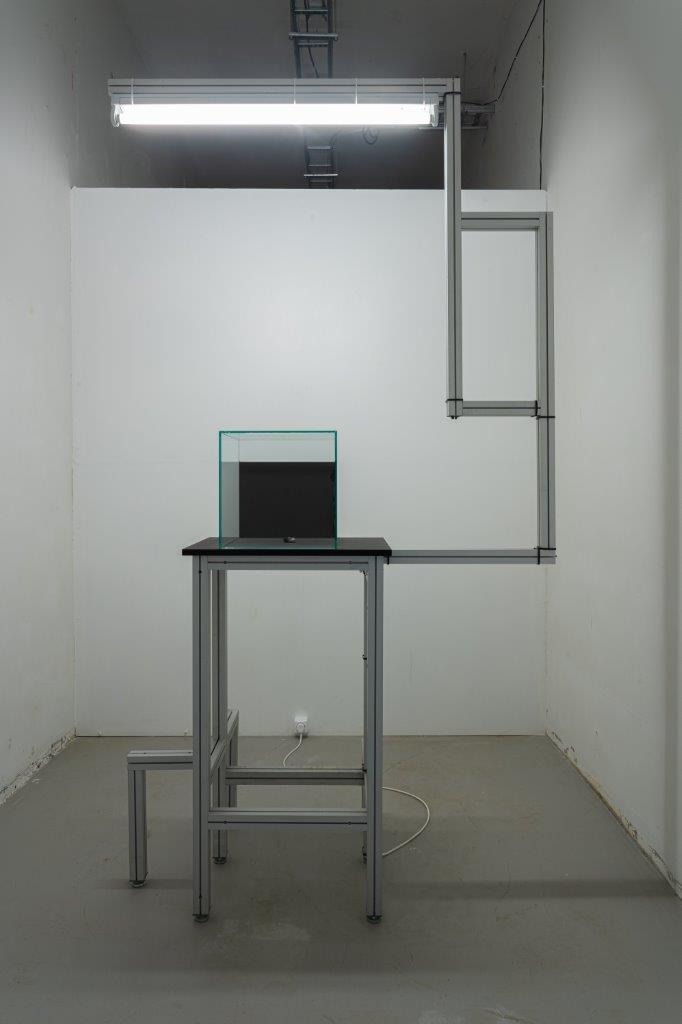
Rectal Candle. Installation detail featuring the pill.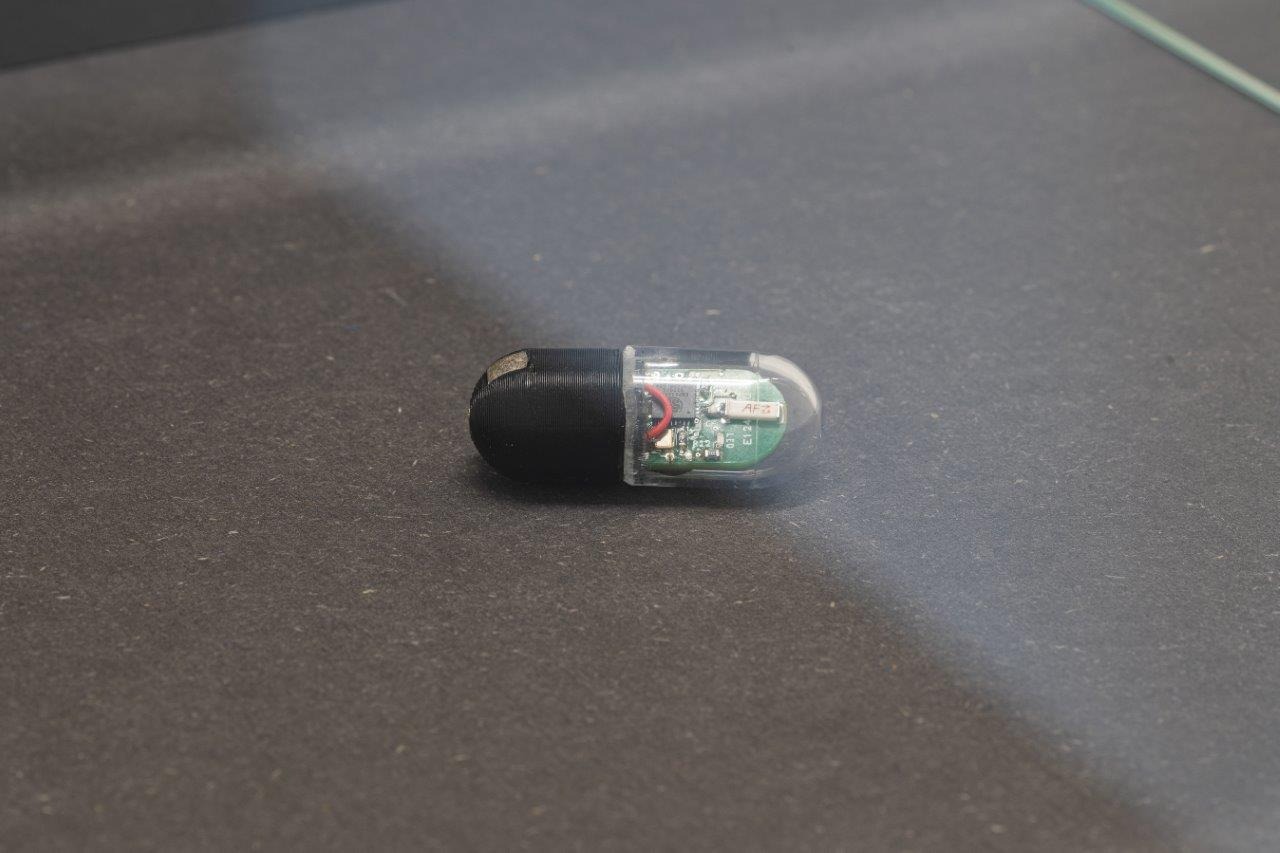
Rectal Candle. Installation detail featuring the 3D drawing of the pill.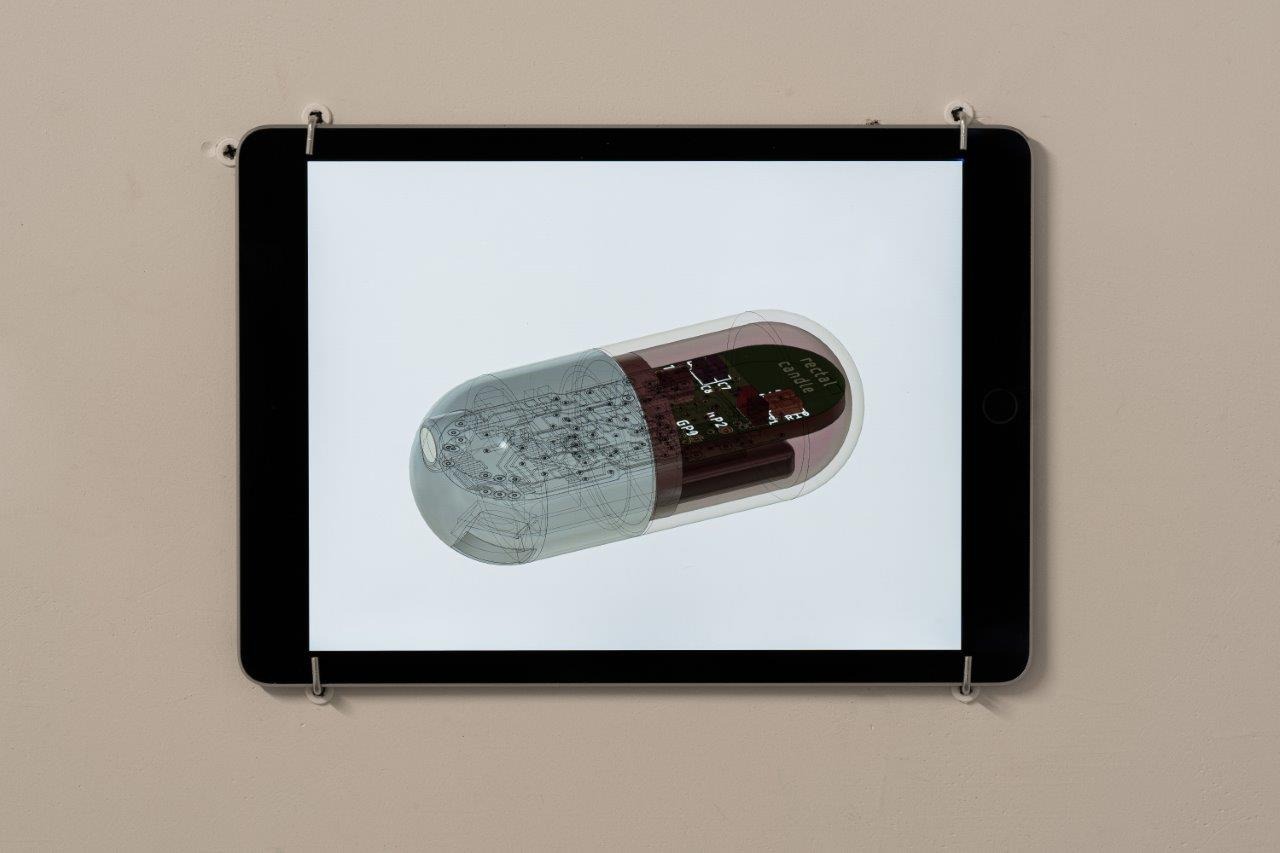
Proposal for Microbial Therapy. Glass containers containing yogurt with Lactobacillus reuteri (left) and Streptococcus spp. (right)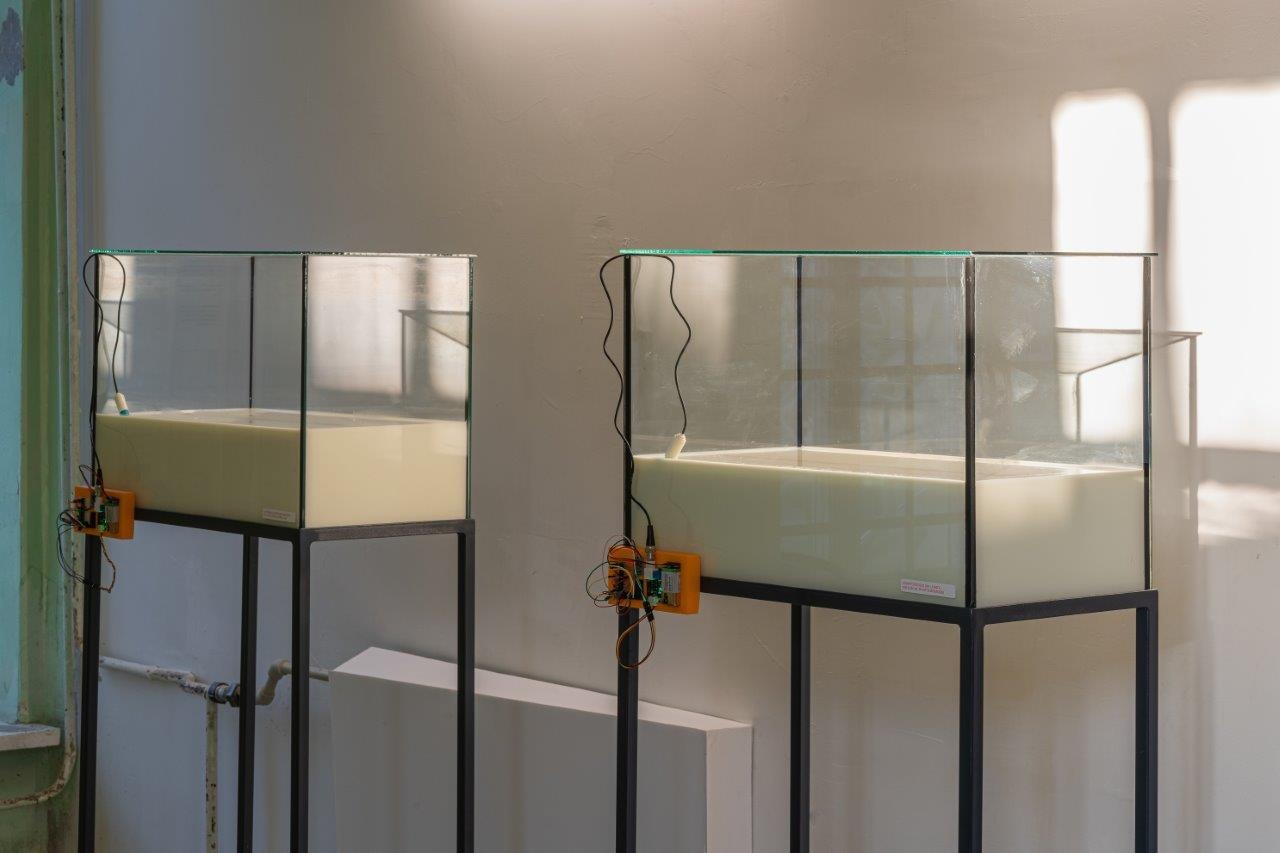
Proposal for Microbial Therapy. Detail. Container containing yogurt with Streptococcus spp. 
Proposal for Microbial Therapy. Detail. Monitor displaying the Ph of yoghurt with Lactobacillus reuteri bacteria.
My Collaboration with Bacteria for Paper Production. Installation detail. Isolated bacteria from kombucha tea.